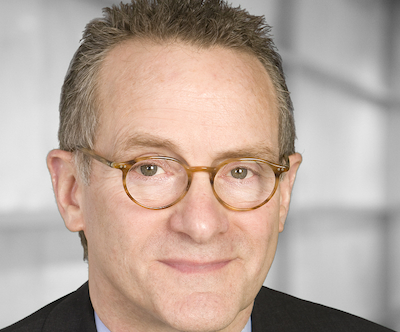In this episode of China Money Podcast, guest Howard Marks, co-founder and chairman of US$93 billion-under-management Oaktree Capital Management, talks to our host Nina Xiang in an exclusive interview in Hong Kong.
Marks, the author of “The Most Important Thing” and whose investment memos have a large following among professional investors, and shared his views on the U.S. economy, emerging markets equities and Oaktree’s China businesses.
Read an excerpt Q&A below, or watch an abbreviated video version. Be sure to listen to the full episode in the audio podcast. Subscribe to the podcast in the iTunes store.
Q: You said that the U.S. economy is getting stronger; asset prices are getting higher, but not yet in bubble territory. What probability do you give to the possibility that asset prices will be in bubble territory in the next two years?
A: It’s hard to know what the future holds. What you are really talking about is psychology, which is unpredictable.
Bubble territory is just an extreme continuation of optimism. Usually, most trends go to extreme before they reverse. So there is some chance.
But not every upward fluctuation turns into an extreme bubble, like what we saw during 2007. I’ve lived through many ups and downs of the market, which never reached bubble proportions.
Q: Where would you put the probability on the bell curve?
A: If bubble means highly dangerous and highly elevated (price) levels, I would imagine the U.S. stock market has a probability of 10% to 15% or so of getting into (a bubble).
Of course, when we do, the result is usually a painful correction.
Q: You also said that defaults in the U.S. are unlikely to rise in the foreseeable future. Why?
A: We are in a virtuous cycle. Right now, the environment seems very positive. The economy is improving, and the capital markets are very accommodative.
Most defaults occur when people see a troubled situation, and say “We are not going to throw good money after bad.” In today’s positive environment, people tend to say “We are going to provide a rescue.” So the availability of capital is high.
Q: Last week, the U.S. Federal Reserve stopped its bond-buying program. How would you rate the Fed’s policies in the past six years?
A: This is a very difficult test, like in school. It’s not a test that the smartest kid in school gets 100. The smartest kid gets 70, but it’s still an “A”.
We did difficult things. There were no instruction manuals, and no experience. I think the leaders of the U.S. financial system should get an “A”. The things we did were imperfect. But if you look around the world, I think we did better than anybody else.
Q: Another veteran investor Jim Rogers has been warning about a “terrible price” that we all have to pay when the “artificial ocean of liquidity” ends. Do you agree?
A: I don’t know whether it’s going to be “terrible”. (But) we will pay a price.
The high degree of liquidity has made everybody optimistic. Everybody has been behaving as if good things are likely to happen. When liquidity dries up, some bad things can happen instead. The extreme optimists will be disappointed.
Q: Since mid-2011, Oaktree’s investing mantra has been move forward but with caution. How has that changed today?
A: Absolutely not. The most important single thing every investor has to decide is “Should I be aggressive, or should I be defensive,” and “Should I be balancing the two, and how?”
There are times for extreme caution, when the outlook is very bad and asset prices are extremely high. I don’t think this is the time for extreme caution. If you are extremely cautious today, and put your money in money market instruments, you would get almost no return.
On the other hand, there are times for aggressiveness, when the outlook is great and asset prices are low. This is not that time, neither.
So we are in between. Everybody’s posture should be in between. So, I would say any investor’s course of action today should include a substantial dose of caution.
Q: Oaktree raised US$16.6 billion during the past 12 months — the highest in six years. Can we read that as you are now preparing to be aggressive, just like before the 2008 crisis?

